Political Parties - 2 | Indian Polity for UPSC CSE PDF Download
State Parties
The Election Commission has classified some of the major parties of the country as “State parties”. These are also referred to as regional parties. Some of these parties are:
- Biju Janata Dal
- Sikkim Democratic Front
- Mizo National Front
- Telangana Rashtra Samithi
Challenges to Political Parties
Popular dissatisfaction and criticism have focused on 4 problem areas in the working of political parties. These are:
- Lack of internal democracy within parties. Parties do not keep membership registers, do not hold organizational meetings, and do not conduct internal elections regularly.
- Most political parties do not practice open and transparent procedures for their functioning, so there are very few ways for an ordinary worker to rise to the top in a party. In many parties, the top positions are always controlled by members of one family.
- The third challenge is about the growing role of money and muscle power in parties, especially during elections. Since parties are focused only on winning elections, they tend to use short-cuts to win elections. In some cases, parties support criminals who can win elections.
- People do not find parties to be a meaningful choice for their votes. Sometimes people cannot even elect very different leaders either, because the same set of leaders keep shifting from one party to another.
How can Parties be Reformed?
Have a look at some of the recent efforts and suggestions to reform political parties and their leaders in India. Some efforts are listed below:
- The Constitution was amended to prevent elected MLAs and MPs from changing parties.
- The Supreme Court passed an order to reduce the influence of money and criminals. Now, it is mandatory for every candidate who contests elections to file an AFFIDAVIT giving details of his property and criminal cases pending against him.
- The Election Commission passed an order making it necessary for political parties to hold their organizational elections and file their income tax returns
Besides these, many suggestions are made to reform political parties. These suggestions have not yet been accepted by political parties.
- A law should be made to regulate the internal affairs of political parties.
- It should be made mandatory for political parties to give a minimum number of tickets, about one-third, to women candidates. Similarly, there should be a quota for women in the decision making bodies of the party.
- There should be state funding of elections. The government should give parties money to support their election expenses.
There are two other ways in which political parties can be reformed.
- People can put pressure on political parties. This can be done through petitions, publicity and agitations.
- Political parties can improve if people who want change can join political parties. It is difficult to reform politics if ordinary citizens do not take part in it and simply criticise it from the outside.
Recognized National Parties and their Symbols (2019)
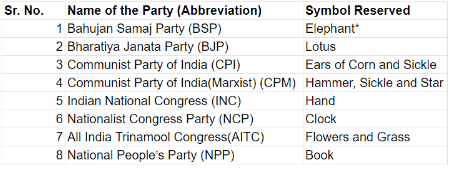
*In all States/U.T.s except in Assam, where its candidates will have to choose a symbol out of the list of free symbols specified by the Election Commission.
Recognized State Parties and their Symbols (2019)
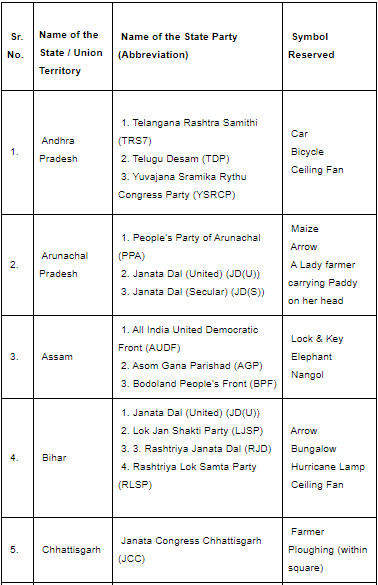
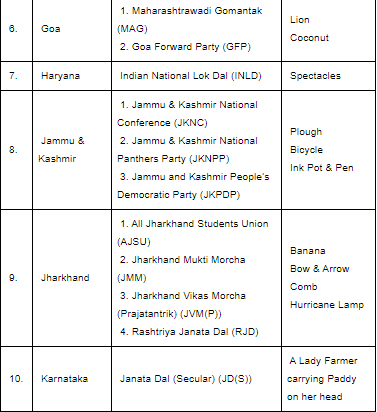
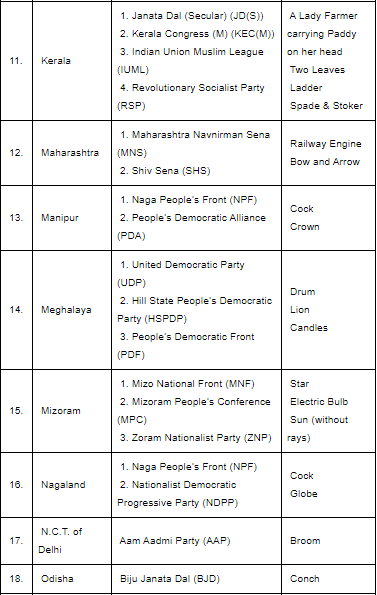
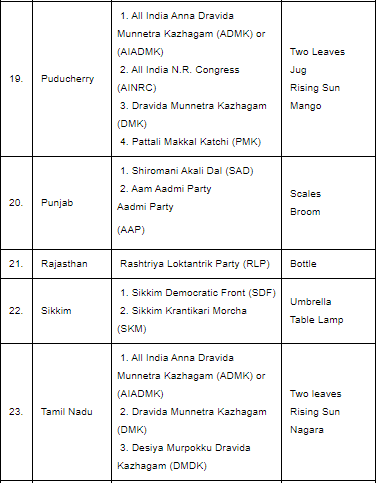
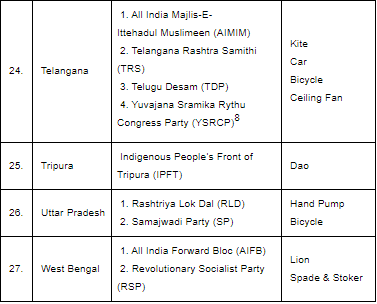
|
142 videos|777 docs|202 tests
|
FAQs on Political Parties - 2 - Indian Polity for UPSC CSE
| 1. What are state parties? |  |
| 2. What are the challenges faced by political parties? |  |
| 3. How can political parties be reformed? |  |
| 4. What factors contribute to the success of state parties? |  |
| 5. How do state parties contribute to the overall political landscape? |  |





















